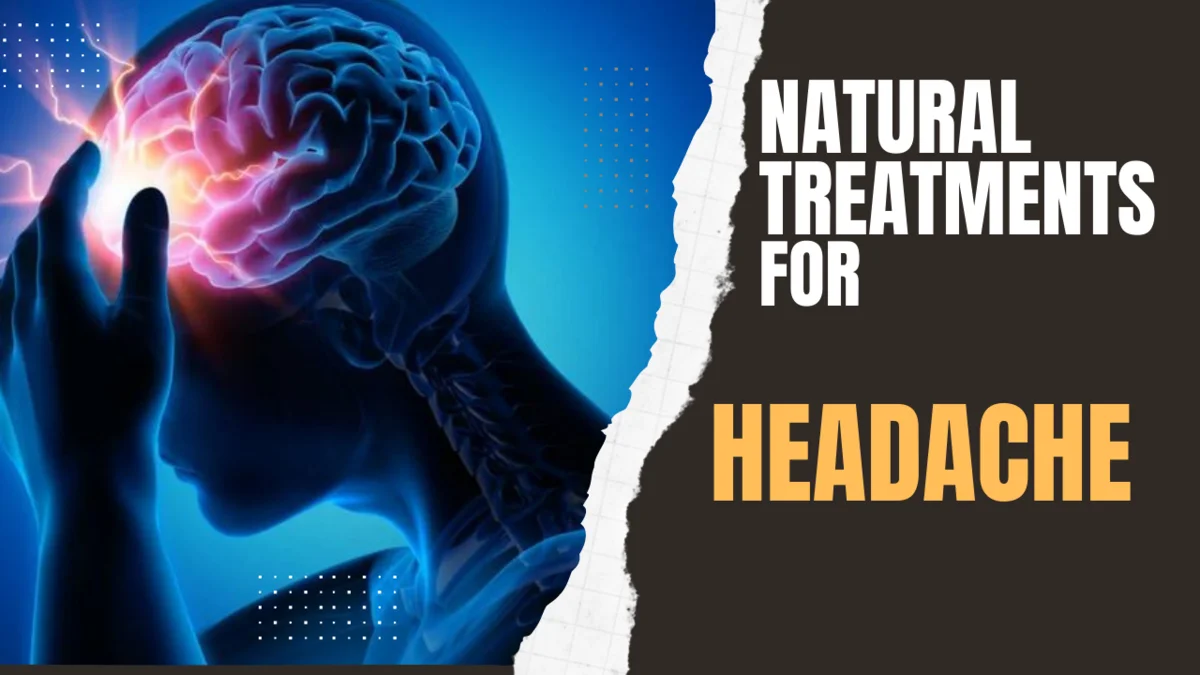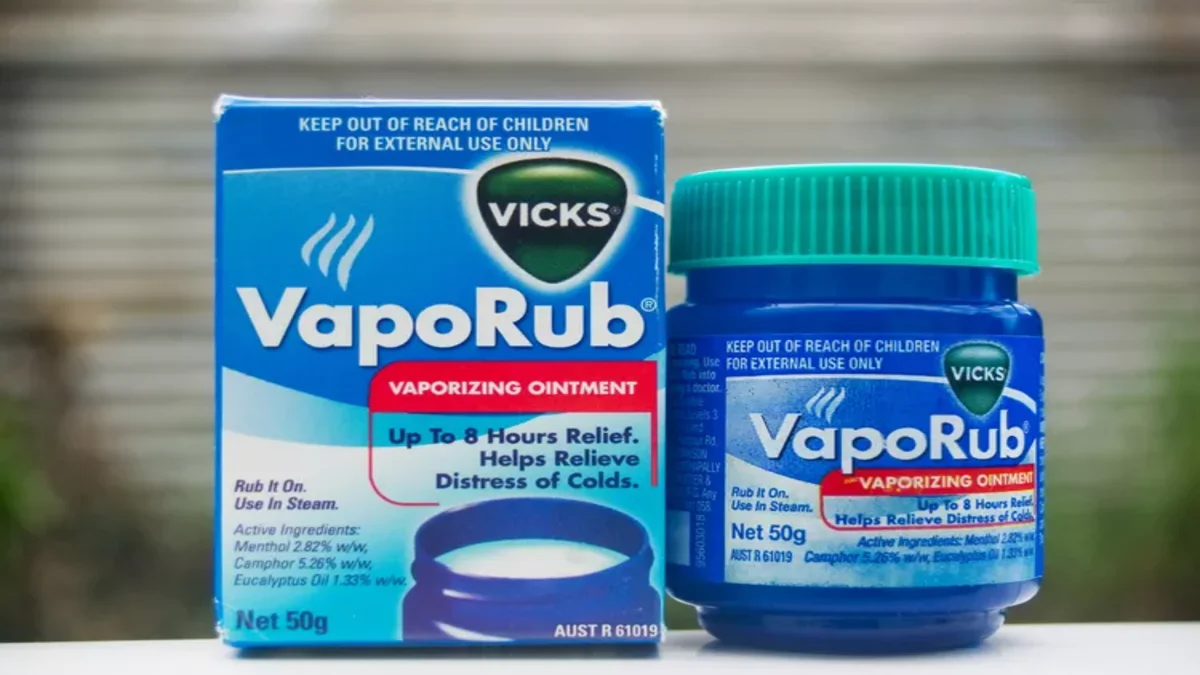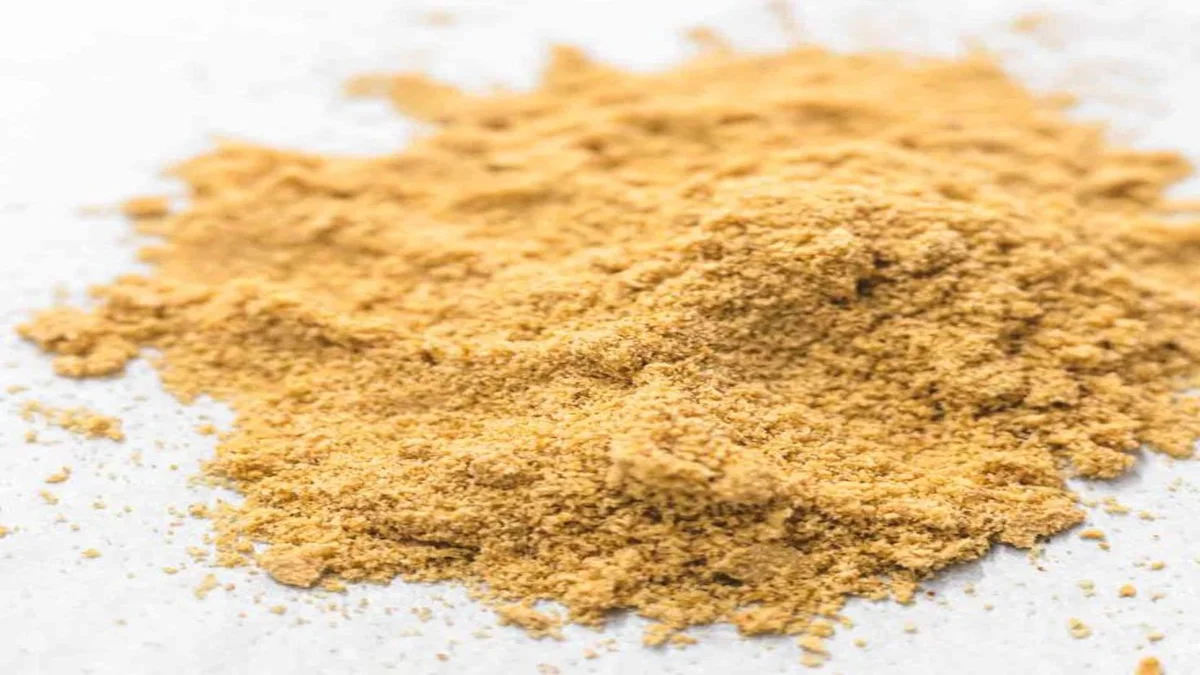The Natural Treatments for Headache has become a beacon of hope for those seeking alternatives to conventional remedies. In this comprehensive guide, we delve into an attractive world of natural solutions. In the quest for effective headache management, many individuals are turning to the realm of natural treatments for a holistic approach to relief.
Headaches can be debilitating and interfere with our daily productivity and overall well-being. How many times have you reached for over-the-counter painkillers to find temporary relief, only for the pain to return? If you’re tired of relying on medications that may have side effects, it’s time to explore powerful natural treatments that can provide long-lasting headache relief.
What causes of Headache?
Headaches can be triggered by various factors, and understanding the underlying causes is crucial for effective management and prevention. Here are some common contributors to headaches:
- Tension and Stress: Prolonged periods of stress and tension can lead to muscle contractions in the head and neck, resulting in tension headaches. Managing stress through relaxation techniques and lifestyle changes can be beneficial.
- Dehydration: Inadequate fluid intake can cause dehydration, leading to headaches. Staying properly hydrated supports overall health and helps prevent headaches. Aim to drink an adequate amount of water throughout the day.
- Lack of Sleep: Insufficient or poor-quality sleep can contribute to headaches. Establishing a consistent sleep routine and ensuring a comfortable sleep environment can help alleviate this cause.
- Dietary Factors: Certain foods and drinks may trigger headaches in susceptible individuals. Common culprits include caffeine, alcohol, artificial sweeteners, and foods containing tyramine (found in aged cheeses and processed meats). Identifying and avoiding trigger foods can be key.
- Hormonal Changes: Fluctuations in hormones, often associated with the menstrual cycle, pregnancy, or menopause, can contribute to headaches. Horm
- Tension and Stress: Prolonged periods of stress and tension can lead to muscle contractions in the head and neck, resulting in tension headaches. Managing stress through relaxation techniques and lifestyle changes can be beneficial.
- Dehydration: Inadequate fluid intake can cause dehydration, leading to headaches. Staying properly hydrated supports overall health and helps prevent headaches. Aim to drink an adequate amount of water throughout the day.
- Lack of Sleep: Insufficient or poor-quality sleep can contribute to headaches. Establishing a consistent sleep routine and ensuring a comfortable sleep environment can help alleviate this cause.
- Dietary Factors: Certain foods and drinks may trigger headaches in susceptible individuals. Common culprits include caffeine, alcohol, artificial sweeteners, and foods containing tyramine (found in aged cheeses and processed meats). Identifying and avoiding trigger foods can be key.
- Hormonal Changes: Fluctuations in hormones, often associated with the menstrual cycle, pregnancy, or menopause, can contribute to headaches. Hormonal migraines are a specific type of headache triggered by hormonal shifts.
- Environmental Factors: Exposure to environmental elements such as strong odors, pollution, or weather changes can be headache triggers for some people. Identifying and minimizing exposure to these factors may help reduce headaches.
- Posture and Ergonomics: Poor posture, especially when sitting at a desk or using electronic devices for extended periods, can strain the muscles in the neck and contribute to tension headaches. Maintaining good posture and taking breaks to stretch can be beneficial.
- Eye Strain: Prolonged use of digital screens, reading in low light, or uncorrected vision problems can strain the eyes and lead to headaches. Regular eye check-ups and the use of proper lighting can help prevent eye-related headaches.
- Medication Overuse: Ironically, the excessive use of certain medications, including pain relievers, can lead to rebound headaches. It is essential to follow recommended dosage guidelines and consult with healthcare professionals if headaches persist.
- Underlying Health Conditions: Certain medical conditions, such as sinus infections, migraines, or temporomandibular joint (TMJ) disorders, can contribute to headaches. Identifying and treating the underlying health issue is crucial for effective headache management.
- Environmental Factors: Exposure to environmental elements such as strong odors, pollution, or weather changes can be headache triggers for some people. Identifying and minimizing exposure to these factors may help reduce headaches.
- Posture and Ergonomics: Poor posture, especially when sitting at a desk or using electronic devices for extended periods, can strain the muscles in the neck and contribute to tension headaches. Maintaining good posture and taking breaks to stretch can be beneficial.
- Eye Strain: Prolonged use of digital screens, reading in low light, or uncorrected vision problems can strain the eyes and lead to headaches. Regular eye check-ups and the use of proper lighting can help prevent eye-related headaches.
- Medication Overuse: Ironically, the excessive use of certain medications, including pain relievers, can lead to rebound headaches. It is essential to follow recommended dosage guidelines and consult with healthcare professionals if headaches persist.
- Underlying Health Conditions: Certain medical conditions, such as sinus infections, migraines, or temporomandibular joint (TMJ) disorders, can contribute to headaches. Identifying and treating the underlying health issue is crucial for effective headache management.
Types of headache
Headaches can be classified into various types based on their causes, symptoms, and characteristics. Here are some common types of headaches:
- Tension Headaches:
- Description: The most common type.
- Symptoms: Mild to moderate pain, often described as a band-like pressure around the head.
- Causes: Stress, tension, poor posture, and eye strain.
- Migraines:
- Description: Intense, throbbing pain often accompanied by other symptoms.
- Symptoms: Severe pain, nausea, vomiting, sensitivity to light and sound, and aura (visual disturbances) in some cases.
- Causes: Genetic factors, hormonal changes, certain foods, and environmental factors.
- Cluster Headaches:
- Description: Intensely painful headaches that occur in clusters or cycles.
- Symptoms: Severe, sharp pain, usually around one eye, accompanied by redness, tearing, and nasal congestion.
- Causes: The exact cause is unknown, but may be related to abnormalities in the hypothalamus.
- Sinus Headaches:
- Description: Pain and pressure in the face, typically around the sinuses.
- Symptoms: Congestion, facial pain, and tenderness.
- Causes: Inflammation or infection of the sinuses.
- Hormone Headaches:
- Description: Linked to hormonal fluctuations.
- Symptoms: Usually associated with menstruation, pregnancy, or menopause.
- Causes: Hormonal changes affecting blood vessels and nerves.
- Rebound Headaches (Medication Overuse Headaches):
- Description: Caused by overuse of headache medications.
- Symptoms: Worsening headaches upon medication withdrawal.
- Causes: Overuse of pain relievers, especially those containing caffeine.
- Exertional Headaches:
- Description: Triggered by physical activity.
- Symptoms: Throbbing headache during or after exercise.
- Causes: Increased blood flow to the head during strenuous activities.
- Chronic Daily Headaches:
- Description: Occur more than 15 days a month.
- Symptoms: Various headache types, including tension-type and migraines.
- Causes: Often unclear, may be related to overuse of medications, stress, or underlying health conditions.
- Thunderclap Headaches:
- Description: Sudden and severe onset.
- Symptoms: Peaks within 60 seconds to a few minutes.
- Causes: Often associated with serious conditions like bleeding in the brain or reversible cerebral vasoconstriction syndrome (RCVS).
- Ice Pick Headaches:
- Description: Intense, stabbing pain.
- Symptoms: Brief, sharp pain.
- Causes: Unknown, may be related to dysfunction in pain-sensing nerves.
Natural Treatments for Headache
For certain people, there are natural remedies that can effectively relieve or prevent headaches. It’s important to remember that each person may react differently, and seeking medical advice is advised—especially in cases of severe or persistent headaches. The following are a few all-natural headache remedies:
1. Drink water (Natural Treatments for Headaches)

Research has shown that headaches are frequently caused by dehydration.
Furthermore, dehydration can exacerbate symptoms by impairing attention and increasing irritation.
Fortunately, studies indicate that increasing water intake may help some people experience fewer headaches, as well as shorter ones that are less severe.
Focus on consuming foods high in water, such as fruits and vegetables, and drinking adequate water throughout the day to help prevent dehydration headaches.
2. Exercise (Natural Treatments for Headache)

Studies have demonstrated that moderate aerobic exercise can help avoid headaches, despite the claims made by some that it causes migraines and headaches. Exercise has been shown to enhance endorphins, which are your brain’s natural painkillers. These substances might help you in your effort to limit the amount of medication you use.
3. Particular Foods (Natural Treatments for Headache)
Certain meals may help prevent and treat headaches, according to certain research. Fish contains omega-3 fatty acids, which have an anti-inflammatory effect that may help lessen headache pain. Potatoes and bananas contain potassium, which has also been demonstrated to contain components that relieve headaches.
4. Massages (Natural Treatments for Headache)
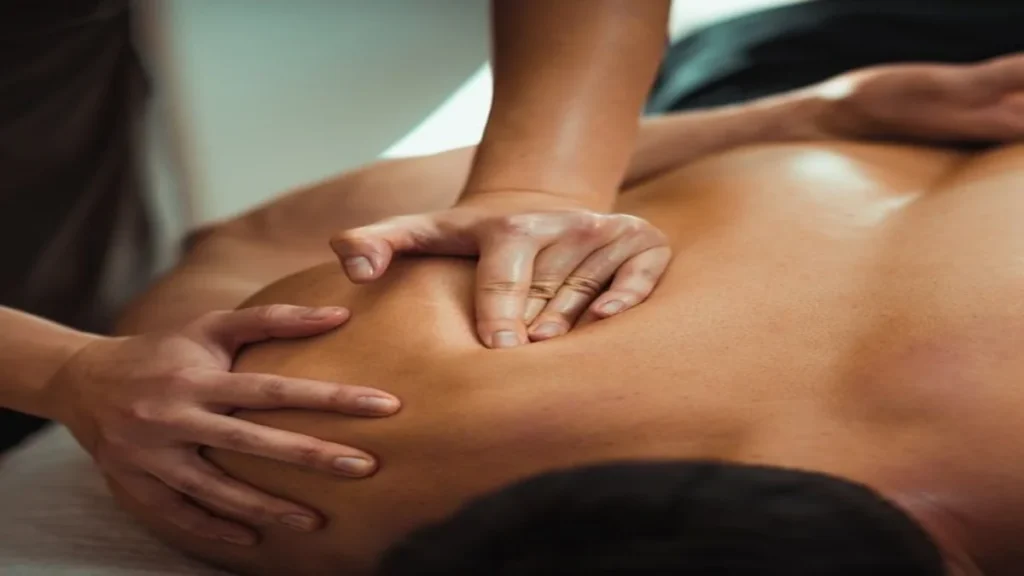
According to the American Massage Therapy Association, full-body massages can improve lower back pain, arthritis, sleeplessness, and headaches. By placing your thumbs on the cheekbones by your ears and rubbing with your fingertips in a circular motion from your temples to the middle of your forehead, you can self-massage away pain and stress.
5. Meditation (Natural Treatments for Headache)
It has been demonstrated that meditation, which combines balance, quiet, and relaxation, can help manage headache symptoms. This exercise reduces mental chatter, raises your pain threshold, and frees you up to concentrate solely on your physical well-being. Breathing also dilates blood vessels and lowers heart rate.
6. Yoga (Natural Treatments for Headache)

Yoga is a great method to reduce stress, improve flexibility, lessen pain, and enhance your life in general.
You might even be able to lessen the frequency and intensity of your headaches by taking up yoga.
In one study, 60 patients with chronic migraines were treated with yoga treatment. When receiving both yoga therapy and traditional medical care, headache frequency, and intensity decreased more than when receiving conventional care alone.
Furthermore, individuals with tension-type headaches reported reduced headache frequency, duration, and intensity when they practiced yoga, according to a 2020 review that comprised six studies.
7. Cold compress (Natural Treatment for Headaches)
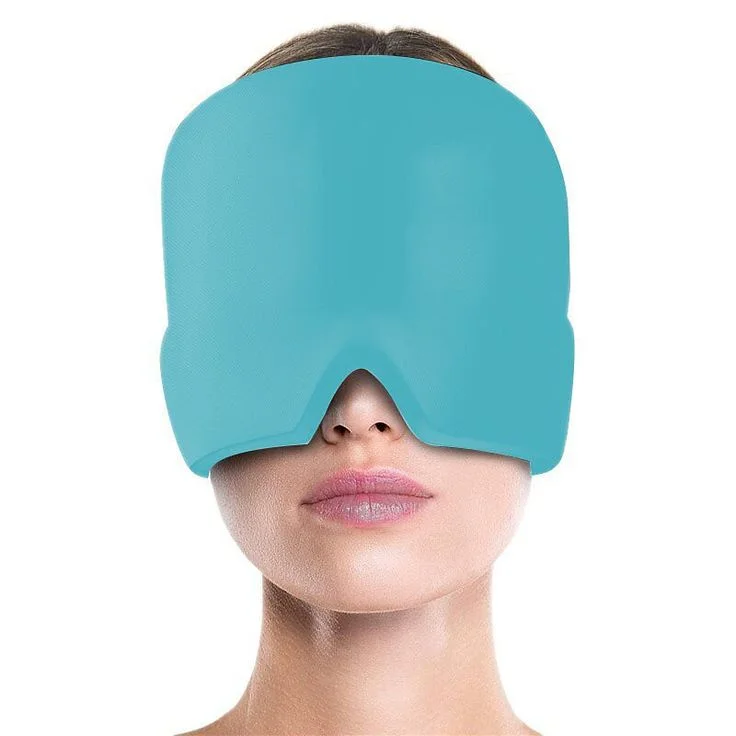
Your headache symptoms could be lessened by applying a cold compress.
By decreasing inflammation, slowing nerve conduction, and constricting blood vessels, applying cold or frozen compresses to your neck or head area may help relieve headache pain.
According to studies, people with some forms of headaches, such as those brought on by nitrate medications used to treat heart issues including chest pain, may find relief with cold therapy.
To create a cold compress, put ice in a waterproof bag and cover it with a gentle towel. For headache treatment, apply the compress to the back of your neck, your head, or your temples.
8. caffeine (Natural Treatments for Headache)

Caffeine has been proven to increase the efficacy of painkillers by 40% when taken together. Caffeine is a common ingredient in headache and migraine treatments. Even though this isn’t a completely natural approach, it’s helpful to know what to do if your headache won’t go away by itself.
9. ginger (Natural Treatments for Headache)
Antioxidants and anti-inflammatory agents are among the many beneficial components found in ginger root.
According to a 2021 review that included three randomized control trials, taking supplements of ginger helped migraine sufferers feel less pain.
Additionally, the ginger treatments lessened vomiting and nausea, which are frequent side effects of intense headaches.
Pure Encapsulations Ginger Extract is a premium supplement that offers 500 mg of ginger root extract in each capsule if you’re interested in taking one.
You can use fresh ginger root to make a potent tea as well. In addition to being inexpensive to prepare, drinking the tea is a beneficial method of staying hydrated.
10. magnesium (Natural Treatments for Headache)

Magnesium is a vital mineral that the body needs for many processes, such as nerve transmission and blood sugar management.
It’s interesting to note that magnesium has also been demonstrated to be a secure, reliable headache treatment.
Research indicates that migraine sufferers are more likely than non-migraine sufferers to have a magnesium shortage.
Research has indicated that taking magnesium supplements, in a variety of forms and dosages, may help lessen the frequency and intensity of migraine attacks.
For instance, giving migraine sufferers a 600 mg magnesium citrate pill may help lessen their migraines.
11. Essential Oils (Natural Treatments for Headache)
While there is no convincing evidence that essential oils can lessen the frequency or intensity of headaches or migraine attacks, some people find it relaxing to rub diluted lavender oil, peppermint oil, or basil oil on their temples or to fragrance the air with a few drops.
“Lavender can be calming, and anything that decreases stress is helpful,” Kriegler said.
While lavender oil can be inhaled or administered topically, the Cleveland Clinic recommends avoiding consuming essential oils like lavender due to their strength.
In addition to peppermint oil, peppermint tea made from fresh or dried leaves can give a soothing effect and aid in healthy hydration.
“Basil oil has a long history as a home remedy for relaxation and as an analgesic, or painkiller,” Rothenberg said. “The herb works as a muscle relaxant, so it is especially helpful for headaches caused by tension and tight muscles.”
Before applying any oil to your skin, dilute it with a carrier oil and test it on the inside of your wrist to ensure you are not allergic to it.
Advice on how to avoid headaches
Preventing headaches involves adopting healthy lifestyle habits and making conscious choices to minimize triggers. Here are some general tips on how to avoid headaches:
- Stay Hydrated:
- Dehydration can contribute to headaches. Drink an adequate amount of water throughout the day, especially in hot weather or during physical activity.
- Maintain a Regular Sleep Schedule:
- Manage Stress:
- Practice stress-reducing techniques such as deep breathing, meditation, yoga, or mindfulness. Identify stressors and work on coping strategies.
- Regular Exercise:
- Engage in regular physical activity to improve overall health and reduce stress. Choose activities you enjoy and can sustain over time.
- Healthy Diet:
- Maintain a balanced diet with regular meals to prevent low blood sugar, which can trigger headaches. Identify and avoid potential trigger foods.
- Limit Caffeine and Alcohol:
- Consume caffeine and alcohol in moderation, as excessive intake can contribute to headaches. Monitor your intake and be aware of individual tolerance levels.
- Eye Care:
- Take regular breaks from screens to prevent eye strain. Ensure proper lighting and ergonomics in your workspace. Consider regular eye check-ups.
- Stay Active During the Day:
- Avoid prolonged periods of sitting or sedentary behavior. Take short breaks to stretch and move throughout the day.
- Maintain Good Posture:
- Poor posture can contribute to tension headaches. Be mindful of your posture, especially when sitting for extended periods.
- Create a Relaxing Sleep Environment:
- Make your bedroom conducive to sleep by keeping it dark, quiet, and cool. Invest in a comfortable mattress and pillows.
- Limit Use of Headphones:
- Prolonged use of headphones or earbuds can contribute to tension headaches. Keep the volume at a reasonable level and take breaks.
- Manage Hormonal Changes:
- If hormonal changes contribute to your headaches, work with your healthcare provider to manage symptoms. This is particularly relevant for individuals experiencing menstrual or menopausal-related headaches.
- Maintain a Regular Routine:
- Stick to a consistent daily schedule, including meal times, sleep, and physical activity. Sudden changes in routine can trigger headaches.
- Use Sunglasses in Bright Light:
- Bright sunlight can trigger migraines in some individuals. Wear sunglasses with UV protection when outdoors, especially on sunny days.
- Limit Medication Use:
- Avoid excessive use of over-the-counter pain medications, as this can lead to rebound headaches. Follow recommended dosage guidelines and consult with a healthcare professional.
Drinks get rid of headaches
- Water:
- Dehydration is a common cause of headaches. Drinking water can help rehydrate the body and relieve headaches caused by a lack of fluids.
- Ginger Tea:
- Ginger has anti-inflammatory properties and may help reduce headache symptoms. Prepare ginger tea by steeping fresh ginger slices in hot water.
- Peppermint Tea:
- Peppermint has a calming effect and may help relax tense muscles. Peppermint tea can be soothing and may alleviate tension headaches.
- Chamomile Tea:
- Chamomile tea has mild sedative properties and may help with relaxation and stress reduction, potentially easing tension headaches.
- Green Tea:
- Green tea contains caffeine and antioxidants, which may provide relief for some types of headaches. However, be mindful of your caffeine tolerance.
- Coconut Water:
- Coconut water is a natural electrolyte-rich beverage that can help with hydration and may be beneficial for relieving headaches caused by dehydration.
- Warm Lemon Water:
- Warm water with a squeeze of lemon provides hydration and the potential benefits of vitamin C. Some people find it refreshing and soothing.
- Herbal Infusions:
- Herbal infusions with ingredients like chamomile, lavender, or valerian root may have calming properties, helping to relax the body and alleviate headaches.
- Beet Juice:
- Beets contain nitrates that may improve blood flow. Drinking beet juice may help with headaches related to poor circulation.
- Celery Juice:
- Celery juice is hydrating and may have anti-inflammatory properties. Some individuals find relief from headaches by incorporating celery juice into their diet.
- Bone Broth:
- Bone broth contains minerals and electrolytes that can support hydration. It may be beneficial for headaches associated with dehydration.
- Hot or Cold Compress:
- While not a drink, applying a hot or cold compress to the forehead can be a helpful complementary measure for headache relief.
Individual responses to these drinks may vary, and the efficiency of these therapies may vary depending on the nature and cause of the headache. Moderation is also important, especially when it comes to caffeine-containing beverages. If your headaches persist or worsen, see a doctor for a precise diagnosis and specific treatment plan.
When to Consult a Doctor
The occasional light headache isn’t normally cause for concern, but if you’re getting regular headaches or a persistent, severe headache, you should seek medical attention.
Headaches can be a sign of a more serious underlying health problem, such as a tumor, a blood clot, or another medical condition that necessitates rapid medical attention.
A doctor can help you rule out probable underlying causes of your headaches and provide you with the appropriate treatment.
They can also perform tests to rule out health issues and nutrient deficiencies, such as B12 and iron deficiency, which can cause or exacerbate headaches.
Seek immediate medical assistance if you have a headache following an accident or trauma, such as a fall, or if you have a sudden, intense headache, as this could be a symptom of a dangerous medical condition.
Summary
Because frequent headaches have severe consequences, it is critical to identify natural and effective treatment solutions.
Yoga, nutritional supplements, essential oils, and dietary changes are all-natural, safe, and efficient headache-relief methods.
While traditional techniques such as pharmaceuticals are frequently required, if you prefer a more holistic approach, there are numerous natural and effective alternatives to prevent and manage headaches.
FAQs
what can I put on my head for a headache?
which pressure point relieves headaches?
how can I get rid of a headache ASAP?
Relaxing in a dark room, using a cold compress, sniffing peppermint or lavender essential oils, consuming caffeine, and avoiding loud noises may also help minimize the severity of a headache.
Keep in mind, however, that these therapies may not be beneficial for everyone. Effective therapies are determined by the type and cause of your headache.


